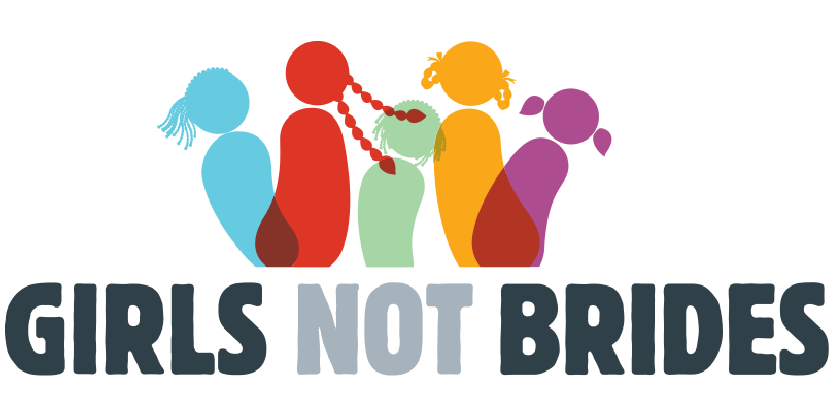Child marriage has witnessed a decline globally, with one in five women being married while still a minor in 2023 compared to one in four a decade ago, a UNICEF report indicates. However, to meet the Sustainable Development Goal of ending child marriage by 2030, the rate of decline would have to be around 20 times quicker.
While a decrease in child marriage has also been reported in Africa, progress has been uneven across the continent. To cope with this issue, several African non-profit organizations continue the fight to eradicate this violation of child rights.
Child marriage widely spread in West and Central Africa
Currently, child marriage is most common in West and Central Africa, where 41% of girls are married before they reach the age of 18.
- Niger has the highest rate of child marriage worldwide at 76% (4.1 million child brides) followed by the Central African Republic (68%) and Chad (67%).
- Nigeria has the highest percentage of child brides in the region – roughly 40% of all child brides live there, amounting to an estimated 22 million.
- In Eastern and Southern Africa, a third of females are married before the age of 18.
- Child marriage also affects boys, especially in Western and Central Africa.
- Males under the age of 18 are frequently married off by their families in Nigeria which forces them to assume adult duties while they are too young.
- The countries with the highest rates of underage marriage among males are the Central African Republic (28%), Nicaragua (19%), and Madagascar (13%).
According to UNICEF, poverty and cultural practices are among the reasons why many families give away their children to marriage when they are between 12 and 15 years of age.
See also: Child marriage is still a persistent problem in Uganda
As 46% of Africa’s population lives on less than US$2 per day, families marry off girls in an attempt to alleviate the financial burden. An example is the heartbreaking story of 14-year-old Enobong from Uyo, Akwa Ibom in Nigeria whose father, overwhelmed by debt, forced her to marry a man he owed money to.
Enobong, who was a top student with a dream of becoming a surgeon, was forced to leave school, abandon her dreams, and enter premature adulthood. Now 19, and still hawking on the streets, she may never recover from this experience thus passing on a cycle of poverty to her children and there are many more like her.
The 13-year-old Mariama from Dosso, Niger, was almost coerced into child marriage by her mother due to the fear of her becoming pregnant outside of wedlock.
UNICEF warns that apart from furthering gender inequality, early marriages harm girls’ childhood, increase the risk of early pregnancy, and lead to responsibility, stress, and limited educational and career opportunities. They are also more susceptible to health issues and domestic abuse. High child marriage rates weaken a nation’s democracy, stability, and development.
Non-profits making an impact
Over the years, non-profits have been observed to play a crucial role in addressing child marriage in Africa by collaborating with local communities to help to detect and prevent child marriage, raise awareness, encourage education, and amplify the voices of women and girls.
 Plan Internationalis a global development and humanitarian organization that advances children’s rights and promotes equality for girls. It operates in several African countries – Egypt, Malawi, Mozambique, Tanzania, Zambia, Zimbabwe, Cameroon, Guinea, Mali, Niger, and Senegal, focusing on ending child marriage as part of its broader mission.
Plan Internationalis a global development and humanitarian organization that advances children’s rights and promotes equality for girls. It operates in several African countries – Egypt, Malawi, Mozambique, Tanzania, Zambia, Zimbabwe, Cameroon, Guinea, Mali, Niger, and Senegal, focusing on ending child marriage as part of its broader mission.
See also: Child marriage in Africa: facts and statistics
Its 18+ Project in Malawi contributed to the constitutional change that increased the legal age for marriage from 15 to 18. The initiative involved over 10,000 people in the community being reached via awareness campaigns, empowerment workshops being offered to 5,000 girls, and assistance being given for the establishment of 30 schools with Codes of Conduct.
Meanwhile, in Tanzania’s Tarime district, Plan International has established 30 girls’ football clubs to create a secure environment for girls to interact, exercise, and learn about their rights, sexual and reproductive health, life skills, child marriage, and FGM. As a result, 93.3% of boys had good knowledge compared to 67% at baseline, and 97.1% of household members questioned agreed that child marriage before the age of 18 is a negative practice, compared to 51% of men and 45.4% of women previously.
 World Vision, a Christian humanitarian organization, has been actively working to combat child marriage in Africa through a comprehensive approach that includes education, economic empowerment, community engagement, and advocacy.
World Vision, a Christian humanitarian organization, has been actively working to combat child marriage in Africa through a comprehensive approach that includes education, economic empowerment, community engagement, and advocacy.
It has created public awareness initiatives in Zambia, reaching nearly 1 million people and improving their understanding of child marriage and how to report incidents. Since 2018, the organization has reported 1,335 child marriages, with 936 girls successfully rescued and 690 supported to return to education. According to a 2021 poll, child marriage rates among teenagers aged 12 to 18 dropped significantly to 2.3% in the regions where the organization operates.
One of its initiatives has taught life skills to 2,689 girls and 2,864 boys, as well as offering alternative rites of passage to 3,662 girls. More than 1,268 girls have been rescued and enrolled at educational institutions. Media efforts have reached over 100,000 individuals, increasing their ability to adopt child safety policies.
 Girls Not Brides in Niger has implemented key initiatives to protect girls and prevent child marriages. It has established 38 child protection committees and 221 village committees, resulting in the postponement or cancellation of over 740 child marriages. It has also facilitated educational programs for 12,471 adolescent girls in target villages, focusing on social mobilization, human rights, sexual and reproductive health, hygiene, and harmful traditional practices.
Girls Not Brides in Niger has implemented key initiatives to protect girls and prevent child marriages. It has established 38 child protection committees and 221 village committees, resulting in the postponement or cancellation of over 740 child marriages. It has also facilitated educational programs for 12,471 adolescent girls in target villages, focusing on social mobilization, human rights, sexual and reproductive health, hygiene, and harmful traditional practices.
Girls Not Brides is currently spearheading a collaborative program to combat child marriage in East Africa, focusing on Kenya, Tanzania, and Uganda.
Progress is being made in implementing strategies to end child marriage, such as the review of the SADC Model Law across 16 countries, which took place from 20 to 22 August 2024, and the historic bill passed by Sierra Leone to end child marriage. These efforts aim to enforce penalties on the offenders, protect victims’ rights, and ensure access to education and support services for young girls affected by child marriage. However, an acceleration in the speed of progress is needed.

